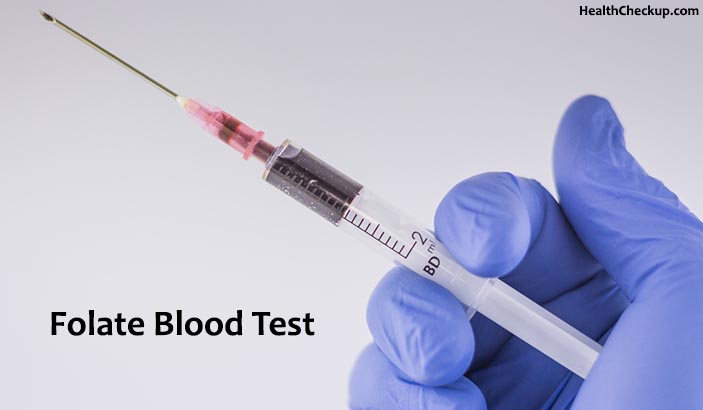Human body requires the intake of several nutrients on a daily basis and deficits in their intake can lead to mild to serious effects on health. Folic Acid, also called Vitamin B9 is one example. Women need a steady intake of folic acid for staying healthy in pregnancy and healthy development of the fetus. Folic acid deficiency may lead to anemia and birth defects. A folate blood test is required to find out the level of the nutrient in one’s body. It is a simple test with no complication involved and fasting for some hours before test is a requirement. Based on results, you may have to alter foods in your diet or take supplements.
When you are pregnant, your body undergoes significant changes, including hormonal flow and physiological developments. Since the fetus gets nutrients from your intake, you need to be careful about adequate intake of major nutrients. During pregnancy, a woman needs to have a well-balanced diet that includes major nutrients in required amounts, or else nutritional deficiency may set in. This can have adverse effects on the fetus development and health of the mother. Folate or vitamin B9 is one such nutrient required during pregnancy. Undergoing a Folate Blood Test is the best option to determine deficiency of this nutrient in the body.
Results of Folic Acid Deficiency
Before you learn the importance of vitamin B9, it is necessary to learn what its deficits can cause. Women carrying a fetus in their womb require additional intake of folic acid since this nutrient plays a major role in the normal fetus development and generation of red blood cells. The deficit of folic acid may lead to problems like birth defects and megaloblastic anemia.
A pregnant woman is usually asked to undergo Folate Blood Test for a number of reasons. The doctors may ask her to opt for this test if she shows signs of folate deficiency. It is also done to see how well the woman is being able to absorb the nutrients from the food. It is also done to find out the root cause of anemia.
Preparation for The Test
To ensure the test results are accurate, you should not eat or drink anything at least 7 to 8 hours before undergoing the test. However, you may drink water in that period. You will need to talk with the doctor to know if you need to stop taking any medication you use before opting for the test. It is ideal that you fast at night and undergo the test in the morning.
Undergoing the Folate Blood Test
The health professional carrying out the test will wrap an apt elastic band on the upper arm to ensure finding veins is easier. Then he/she will choose a needle and clean it with disinfectant fluid. The needle will be inserted into your veins to collect blood samples. After blood is collected the band will be removed from the arm and a bandage will be applied at the needle insertion point. The collected blood then is sent to a lab for analysis and results.
The risk of infection or any complication resulting from the Folate Blood Test is minimal. You will feel nothing more than small and short lived stinging sensation on the vein where the needle is inserted. If the vein from which blood is taken gets swollen, warm compress is applied to normalize it.
What the Results Indicate
The test results basically indicate the amount of Vitamin B 9 in your blood. The values may differ from one lab to another. Based on your health record and related factors, sometimes doctors may declare a finding to be normal even if it is slightly beyond the normal range.
If the Folate Blood Test results reveal elevated amounts of the nutrient in the blood, it is good. The excess folic acid does not cause harm to the body. Low values, however indicate your diet needs more of this nutrient. It may also mean owing to some reasons your body is unable to absorb it from foods. Low folic acid levels in the blood may also be caused by vitamin B12 deficiency at times.
Ways to Enhance Folic Acid Intake
When your blood tests show low amounts of the nutrient in blood, the doctor may ask you to enhance its intake. Ideally, pregnant women should intake 400 micrograms of folic acid a day to stay healthy and ensure steady fetus development. It is found in foods like:
- Citrus fruits
- Green leafy vegetables (spinach and broccoli)
- Milk
- Beans
- Whole grains
- Brussels sprouts
- Avocado
- Lentils
If your body does not get adequate amounts of folic acid from foods, taking supplements can be a necessity. However, you should take a folate supplement only after talking with a doctor, more so if you are pregnant or plan to conceive soon.
Medically Reviewed By

Maanasi specializes in health topics including diet and nutrition. A mother of an untiring seven year old, she enjoys nurturing her love affair with English. She is often found nestled with a book, plopped against a dozen pillows, smiling away at the brink of finishing yet another book of the many dozens, that adorn the shelves of her Mini Library!








